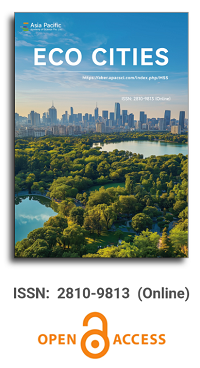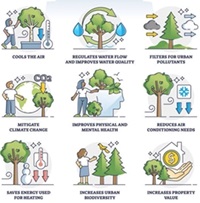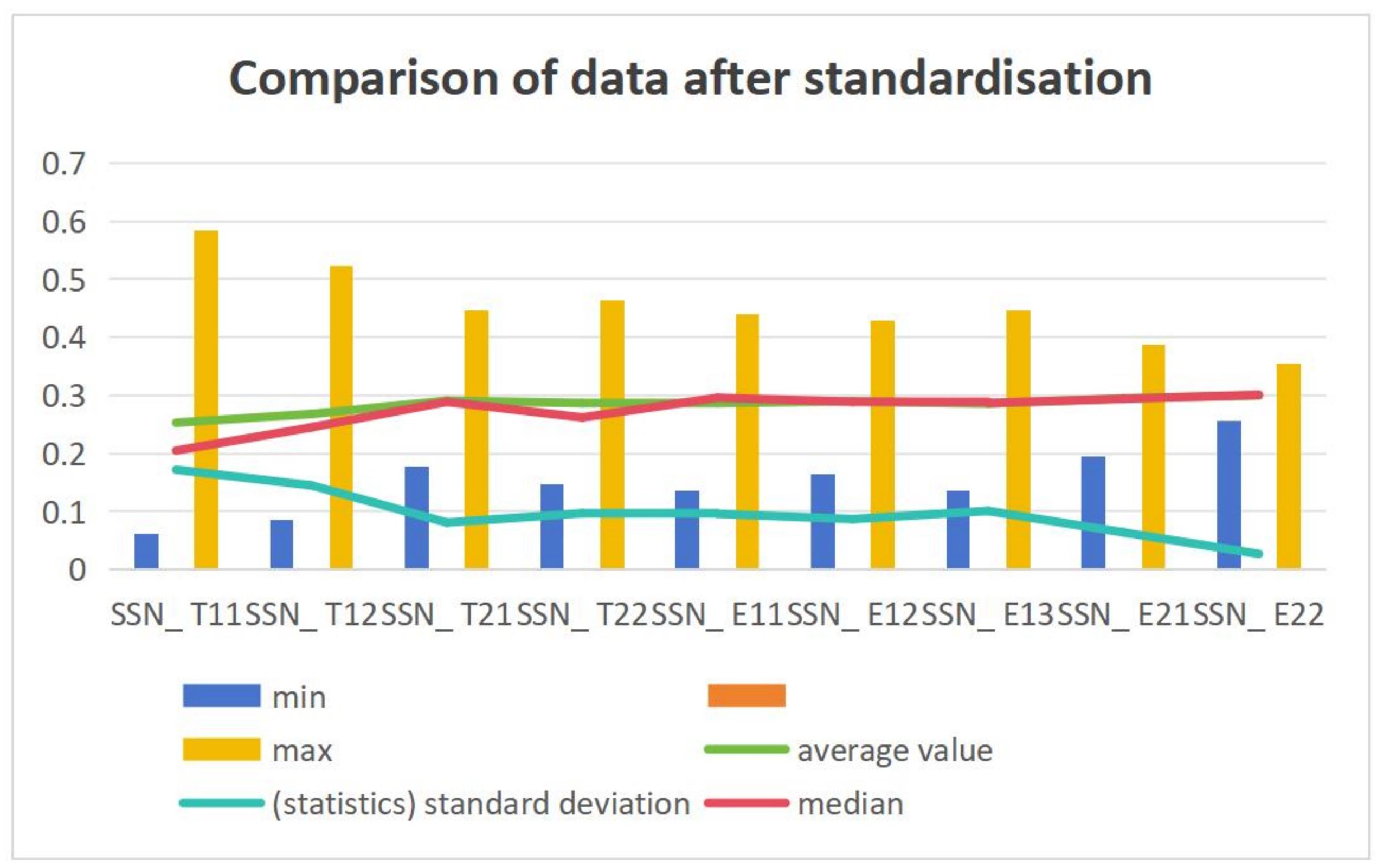


Issue release: 30 December 2024
Issue release: 30 December 2024
Tourism has been instrumental in fostering regional economic growth, enhancing the quality of life of residents, and boosting the image of urban areas in Shaanxi, thanks to the accelerated economic and social development of recent years. Nevertheless, the issue of aligning urban development and tourism in terms of space, resources, and the industrial chain remains a significant concern. This paper establishes an evaluation index system for tourism and urban development in the Shaanxi region from 2009 to 2019. It then employs the systematic coupling coordination model to conduct a comprehensive analysis of the coupling coordination degree of tourism and urban development in the region, as well as its various influencing factors. The study demonstrates that the coupling and coordination degree of tourism and urban development in the Shaanxi region exhibited a trend of continuous improvement from 2009 to 2019. The region underwent three stages of development: “uncoordinated development (2009–2011), transformation development (2012–2016), and coordinated development (2017–2019).” The coupling coordination level was elevated from “mild dissonance” to “intermediate coordination” in 2019. In contrast, the tourism economic development of Shaanxi cities remains unequal, as evidenced by the existence of two distinct categories of development: the “lagging tourism economy” and the “coordinated tourism economy.” The findings of this investigation indicate that the general trend of urban development and tourism in Shaanxi is favorable; however, the disparities in the progress of the tourism economy among cities necessitate additional regional coordination and cooperation. The theoretical support for the relevant research and a reference basis for tourism development planning and urban policy making are provided by the evaluation index system and the systematic coupling coordination model proposed in this paper. This will facilitate the sustainable and coordinated development of the tourism industry and cities in Shaanxi.
Issue release: 30 December 2024
This study assesses the spatio-temporal changes and the impact of urbanization leading to unchecked development within Kaduna city. By utilizing satellite remote sensing data and land use maps of Kaduna, the investigation focused on how the city has expanded over the years and the resultant spurring of incompatible land uses, where residential and commercial uses are increasingly mixed with industrial zones. Using LULC analysis, the results revealed that Kaduna has experienced a 145% increase in urban area between 2001–2014, with the expansion primarily occurring in the southern part of Kaduna metropolis. A change map showing different degrees of increase and decrease in land cover classes was obtained from the post-classification comparison. Using buffer analysis, the study identified and mapped risk zones that represent areas highly susceptible to adverse effects of industrial pollution in the study area. Notably, the Kakuri industrial area has seen significant new incompatible residential and commercial developments, and areas surrounding the Kaduna Refinery and Petrochemical Company (KRPC refinery) have witnessed the proliferation of high-density residential neighborhoods such as Sabon Tasha, Maraba, and Romi. Additionally, other areas such as Mando and Western Bypass are experiencing a mixture of industrial, residential, and commercial activities. These findings underscore the need for effective urban planning and land use management to address the challenges posed by rapid urban expansion and mixed land use in Kaduna.
Issue release: 30 December 2024
This paper explores the imperative for a legal policy addressing the ecological crisis in Nigeria, drawing insights from the biblical perspective of Genesis 2:15. This study adopted the narrative method with data gotten from literature and analysed using content analysis. Scholarly publications on ecological crises abound; however, this study goes a step further by providing responses from a legal and theological lens. Findings show that in Nigeria, large-scale deforestation, often driven by logging, agricultural expansion, and urbanisation, has contributed to the loss of critical ecosystems, wildlife habitats, and biodiversity. Rapid industrialisation and urbanisation in Nigeria have resulted in air pollution, primarily in major cities. The study advocates for the development and implementation of laws that address destruction of the environment, emphasising the interconnectedness of legal, ethical, and biblical principles in fostering sustainable environmental policies for Nigeria.
Issue release: 30 December 2024
Henri Lefebvre, a key Marxist urban theorist, introduced the concept of ‘Planetary Urbanization,’ a cutting-edge theory addressing emerging global forms of capitalist urbanization, where traditional urban theories have limited explanatory power. This paper reviews studies on planetary urbanization over the past 20 years in relation to Lefebvre’s urban theories. The report categorizes planetary urbanization’s contributions to urban theory into two primary aspects. First, it innovatively incorporates the processes of urbanization and the extended operational landscapes within urban research. Second, it proposes new trajectories for urban politics by reshaping Lefebvre’s concept of ‘the right to the city.’ However, by tracing Lefebvre’s theories, the report argues that planetary urbanization overlooks his emphasis on ‘everyday life’ while aligning with his views on generality and universality. Consequently, this dehumanized approach fails to uncover the significant political potential embedded in urban daily life. Additionally, by neglecting the differences among urban populations, the theory adopts a naive perspective on the subaltern’s capacity to articulate their ‘right to the city.’ Moreover, as a Eurocentric theory rooted in Western urbanization history, it inadequately explains context-specific events occurring in the urbanization of the Global South. Thus, this paper suggests that future research on planetary urbanization should incorporate considerations of urban everyday life, recognize social differences, and account for context-specific dependencies.
Issue release: 30 December 2024
Rapid industrialization, urbanization, population growth, and migration from rural areas have resulted in increased solid waste generation in developing cities, which is commonly regarded as the most significant urban issue. The improper disposal of waste and inefficient collection methods is a significant problem in most of the municipalities in Indian cities. This challenge is further compounded by unscientific waste treatment practices, lack of modern technology, and limited resources. This study aims to assess the status of solid waste generation and disposal across different household income groups and to evaluate how Mainpuri manage and handles the solid waste management system. The study is based on primary data collected through a household survey in Mainpuri city, covering a sample of 1,836 households from various income groups. The data used in this assessment was collected from household surveys and government records. Although there is a recycling plant in operation, its capacity is inadequate to address the increasing waste generation and demands of the community. This shortfall underscores the need for enhanced waste management strategies and infrastructure to effectively cope with the rising volumes of solid waste. As a result, large quantities of solid waste accumulate in low-lying areas near the Isan River and the proximity of the plant. Without a comprehensive solid waste management plan in the municipality, the situation is likely to deteriorate further. Mainpuri City urgently needs a sustainable strategy to effectively manage its solid waste, addressing both current challenges and future demands. Implementing such a strategy is essential for improving public health, environmental conditions, and overall quality of life in the city.
Issue release: 30 December 2024
The gardening philosophy of Chinese classical gardens is an integral part of China’s rich traditional culture, reflecting ancient scholars’ understanding of nature and humanity and embodying aesthetic and philosophical values. With the progression of time, integrating the principles of Chinese classical garden gardening into contemporary space design has emerged as a critical issue in contemporary public space design. This study uses the Butong Arts Town in Qinhuangdao as a case study, focusing on applying Chinese classical garden gardening concepts in public space design and regional micro-renovation. Special attention is given to nodes that simultaneously serve interactive and recreational functions. In the micro-renovation of the Butong Arts Town area, Chinese classical garden gardening principles can be employed through greening, landscaping, and other means to enhance the quality of the space. Additionally, by integrating local cultural characteristics, it is possible to create public spaces with distinct regional features, providing a comfortable and pleasant environment for artists, designers, planners, and tourists. The design methods used in this study explore the behavioral characteristics and usage needs of various groups from multiple perspectives, aiming to optimize activity spaces. This research identifies the main issues within the target areas and proposes corresponding improvement measures to enhance the functionality and aesthetic quality of the space. The aim is to integrate people’s growing spiritual pursuits with public activity spaces, providing new references and ideas for future sustainable space design.
Issue release: 30 December 2024
With the advancement of economic structural transformation and urban renewal, the green transformation of industrial heritage sites is increasingly recognized as one of the key strategies for promoting sustainable urban development. Taking Jiangsu Garden Expo Park as an example, this study thoroughly explores the impact of the green transformation of industrial heritage sites on user experience and the relationship between user value perception, satisfaction, and behavioral intention. Based on the experience economy theory, the study classifies user experiences into four types: education, aesthetics, entertainment, and escapism, and examines how these experiences affect users’ functional perceived value, emotional perceived value, satisfaction, and behavioral intention. The results of the study show that educational, aesthetic, and escapist experiences have a significant positive effect on users’ emotional perceived value, while functional perceived value has a stronger effect on satisfaction than emotional perceived value. User satisfaction has a significant positive effect on behavioral intention, which suggests that enhancing user experience play a greater role in promoting positive user behaviour towards green transformation of industrial heritage sites. This study also provides recommendations for developing public participation, improving infrastructure development, cultivating spiritual connotations, and promoting cultural innovation to help the green transformation and tourism development of industrial heritage sites. The findings of this study provide certain theoretical basis and practical guidance for the green transformation of industrial heritage sites, explain the importance of optimising the development of industrial heritage sites from the perspective of user experience, and hopefully provide constructive suggestions for enhancing the attractiveness and sustainability of industrial heritage sites.
Issue release: 30 December 2024
Propose: This paper focuses on helping companies solve the pressure brought by the current digital trend and environmental ecological challenges and achieve the strategic goal of sustainable development. Methods: In this paper, the literature review method is used to collect the relevant literature of the Web of Science (WOS) database 2014–2015 and explore the natural advantages of digital transformation (DT) in the field of green governance. In addition, VOSviewer is used for literature metrology to generate a visual map in order to visually present the current research hotspots. Results: This study shows that DT has three advantages in the field of green governance. Firstly, DT can significantly affect green governance. Secondly, DT can significantly affect green innovation. Thirdly, DT can significantly affect Environment, Social, and Governance (ESG) performance. Practical implications: This study reviews the relevant literature on DT and green governance and excavates the influence of DT in the field of green governance. On the one hand, this study enriches the dual research perspectives of DT and green governance, fills the gap in the study of DT green governance and the level of new green governance, and has important theoretical significance. On the other hand, it is of great practical significance to explore the impact of DT on green governance and provide an important reference for companies to build a new governance paradigm in the digital era.
Issue release: 30 December 2024
Urban farms are areas specifically dedicated to growing plants for purposes related to food security, medicinal use, and therapeutic benefits. Their prevalence has increased notably since the beginning of the 21st century, and they are associated with numerous health advantages. However, there remains a lack of consensus regarding the health impacts of urban farming. In this manuscript, we present a protocol for a systematic review which aims to provide comprehensive insight into required methods used to assess health outcomes from urban farming interventions and is registered in PROSPERO under the reference number CRD42023448001. The protocol will adhere to the PRISMA guidelines, including studies addressing urban farming interventions for any population, with no restrictions on the year of publication, in databases such as PubMed, DOAJ, CAB Abstracts, and NIH. The ROBINS-I tool will assess bias, and the certainty of evidence will be evaluated using the GRADE framework. The data will be synthesized narratively in accordance with SWiM guidelines, aligning with WHO health concepts.

Chinese Academy of Sciences, China
Indexing & Archiving
Asia Pacific Academy of Science Pte. Ltd. (APACSCI) specializes in international journal publishing. APACSCI adopts the open access publishing model and provides an important communication bridge for academic groups whose interest fields include engineering, technology, medicine, computer, mathematics, agriculture and forestry, and environment.


 Open Access
Open Access

.jpg)

.jpg)



